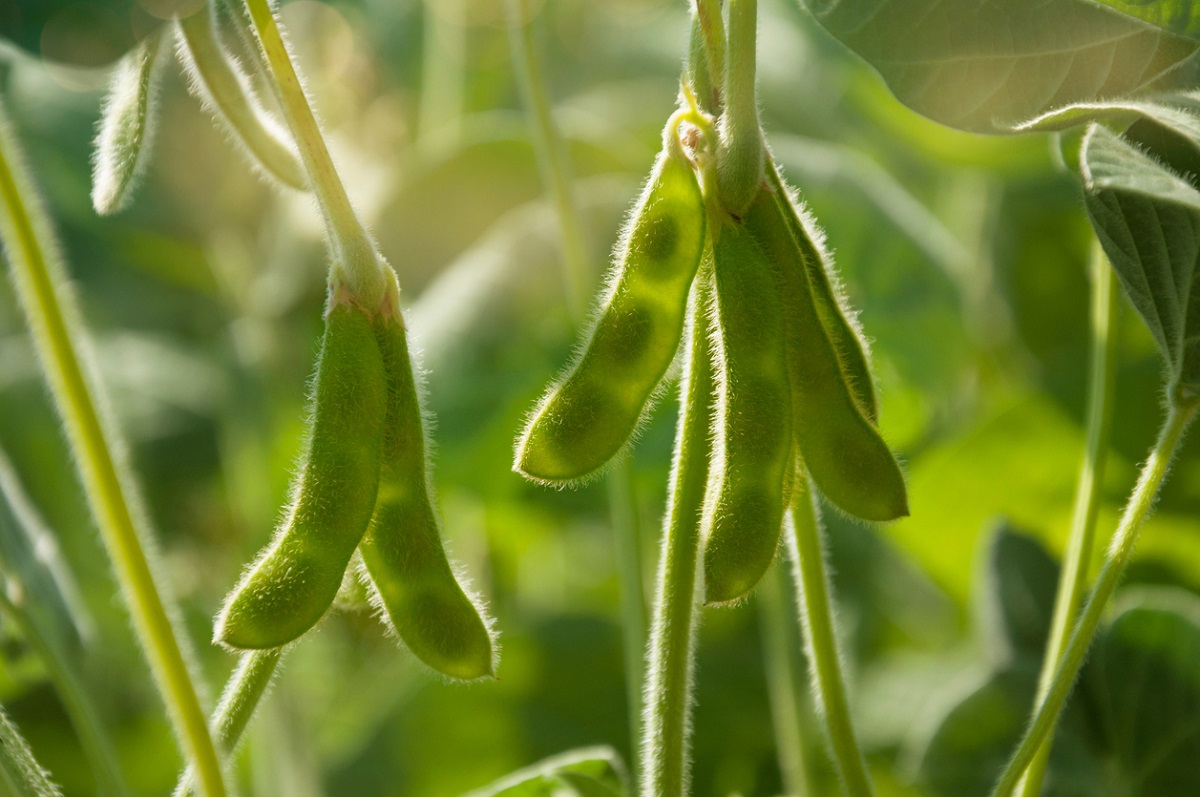
Soy Breeding Tools and Approaches Identified Through Stakeholder Collaborative Research Effort
May 4, 2022| |
The SoyaGen Project aimed to develop genomics-derived solutions to real-world challenges faced by breeders. In its conclusion, the project team documented new tools and approaches that breeders can use to implement molecular, genomics-informed breeding strategies that are broadly applicable to global soybean breeding efforts.
The project was a collaboration among Canadian soybean researchers and breeders from the academe, the private sector, and international partners. The project enabled them to focus on maximizing soy yield through optimization of maturity and improved disease resistance. Specifically, they were able to identify single nucleotide polymorphism (SNP) datasets that exhibited the genetic diversity of a cultivated soybean from a collection of more than a thousand soybean accessions as well as a subset of 102 short-season accessions. They also identified SNP markers for selecting favorable alleles at key maturity genes and loci associated with increased resistance to significant pathogens and pests. The researchers were also able to develop a diagnostic tool that helped them identify and map specific pathotypes of Phytophthora sojae. Lastly, they came up with a genomic prediction approach to determine the most promising combination of soy parents for breeding.
Aside from the scientific contributions to soy breeding, the project also demonstrated a model for collaborative research that can be replicated for other research activities involving other crops. The collaborative effort has proven to help stakeholders and breeders address challenges such as increasing agricultural productivity in the midst of climate change.
Read more about the SoyaGen Project in Frontiers in Plant Science.
| |
You might also like:
- Drought Tolerant HB4 Soybeans Introduced in Argentina
- Gene-edited High Oleic Soybean Oil Now Available in the US
- Bolivia Approves Use of Biotechnology for Soy Production
Biotech Updates is a weekly newsletter of ISAAA, a not-for-profit organization. It is distributed for free to over 22,000 subscribers worldwide to inform them about the key developments in biosciences, especially in biotechnology. Your support will help us in our mission to feed the world with knowledge. You can help by donating as little as $10.
-
See more articles:
-
News from Around the World
- International Research Team Discovers Major Genes Influencing Chickpea's Flowering Time
- Egyptian Researchers Develop GM Wheat with Resistance to Salinity and Water Scarcity
- Study Finds Increasing Trend in Tillage Intensity in the US
- First Xtend® Soybean Cultivars Hit the Market in Brazil
- Attitude, Trust, and Knowledge Affect Consumers’ Willingness to Buy GM Foods in Iran
- China Approves Drought Tolerant HB4® Soybeans
- PH Judiciary Officials Get Updates on Biotech Regulations
-
Research Highlights
- Soy Breeding Tools and Approaches Identified Through Stakeholder Collaborative Research Effort
-
Read the latest: - Biotech Updates (January 21, 2026)
- Gene Editing Supplement (January 28, 2026)
- Gene Drive Supplement (February 22, 2023)
-
Subscribe to BU: - Share
- Tweet

